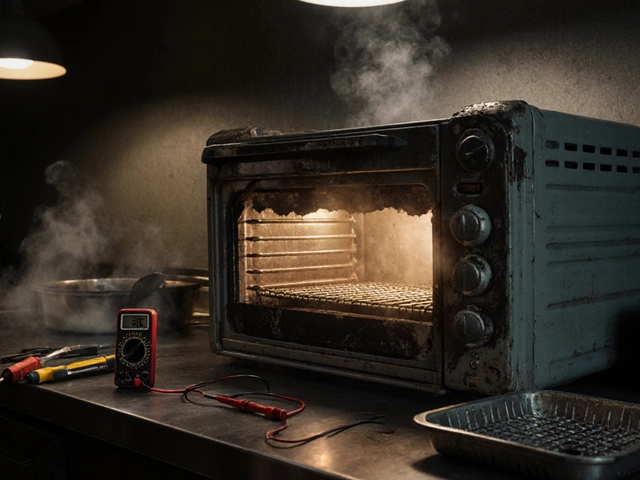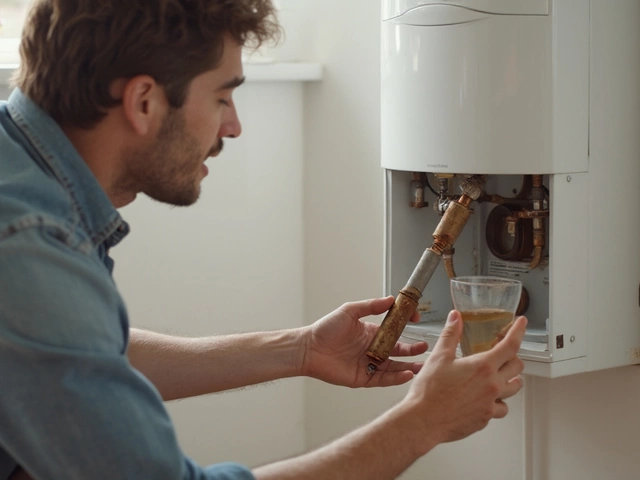Ever stood in the kitchen wondering why your extractor fan sounds like a jet engine or why the air barely moves? You’re not alone. Most households hit a snag with their fans at some point – motor whine, weak suction, or the dreaded complete stop. The good news? Many of these glitches are easy to spot and often fix without calling a stranger.
First, listen. A high‑pitch squeal usually means the motor bearings are wearing out. A thumping noise can point to a loose fan blade or a damaged motor mount. If the fan runs but the airflow feels thin, the filter is probably clogged with grease and dust. And if the fan refuses to start altogether, check the power supply – a tripped circuit breaker or a loose plug is a common culprit.
Another red flag is the fan staying on longer than needed. Modern fans have built‑in timers or humidity sensors; if those components fail, the fan may run continuously, wasting electricity and getting hotter than it should.
Before you grab the phone, try these quick steps. Turn off the power at the fuse box – safety first. Remove the front grille (usually a couple of screws) and give the filter a good soak in hot, soapy water. Let it dry completely and pop it back in.
If the motor still sounds odd, locate the motor housing and clean any dust you see with a soft brush. A burst of compressed air can clear hidden grime from the fan blades. For a noisy motor, a few drops of lightweight oil on the bearings can calm things down, but only if the motor is designed for it – check the label.
When the fan won’t spin at all, test the wiring with a multimeter. Look for a clean connection at the terminal block; a corroded strap can stop electricity flowing. If the wiring looks fine, the motor itself may be burnt out. In that case, swapping the motor is the next step, and you’ll need the exact model number – it’s usually on a sticker inside the housing.
Most extractor fans last about 5‑7 years. If yours is older, the bearings, motor, or even the fan housing might be near the end of its life. A fresh fan can cost less than a full repair, especially if you’re already opening the unit.
When you decide it’s time for a replacement, the DIY route is doable. Measure the duct size, buy a compatible unit, and follow the simple plug‑and‑play instructions most brands provide. Just remember to seal any gaps with duct tape to keep the air moving efficiently.
But not every problem is a weekend project. If you’ve tried cleaning, checked the wiring, and the fan still misbehaves, it’s time to call in a professional. Electricians and qualified appliance technicians know how to safely test the motor, replace internal components, and ensure the fan meets local building codes.
At Bognor Regis Appliance Repair Experts, our team handles extractor fan repairs fast. We’ll diagnose the fault, tell you whether a repair or a new fan makes more sense, and get your kitchen back to breathing easy.
So next time your fan acts up, start with the easy checks, weigh the age of the unit, and don’t hesitate to call a pro if the fix looks beyond a quick DIY. A working extractor fan keeps cooking smells down and your kitchen fresh – and that’s worth a little attention.

Extractor fans are essential for maintaining good air quality, especially in kitchens and bathrooms. When they stop working, it might be due to electrical, mechanical, or cleanliness issues. Understanding the root causes of fan failures can save you time and money in repairs. Discover common problems, practical tips, and preventive measures to keep your fan spinning efficiently.

Dealing with a lack of hot water can be incredibly frustrating, especially during colder months. This article provides step-by-step guidance to identify and fix common issues with water heaters, ensuring you can tackle minor problems yourself before calling a professional. By understanding the functionality and common problems associated with water heaters, you can save time, money, and avoid inconvenient cold showers.

Find out how to tell if your oven’s heating element or thermostat is busted with simple tests, warning signs, and expert tips you can trust.

If your electric oven isn't heating, it's usually due to a broken element, faulty thermostat, or blown thermal fuse. Learn how to diagnose and fix the most common causes quickly and safely.

Not sure if your water heater's anode rod is shot? This article breaks down the telltale signs that your anode rod is past its prime, from weird smells to rusty water. Find out how long these rods actually last, why they're so important, and how to check them yourself. With some simple tips, you'll spot trouble before it wrecks your tank. Get the facts so you can keep hot water flowing without a nasty surprise.

Considering replacing your electric oven on your own? Before you jump into action, it's crucial to understand the steps involved and the potential challenges you might face. From ensuring safety precautions to understanding the basic wiring, this article delves into what you need to know. We'll discuss not only the tools and skills required but also when it's better to call in a professional. By the end, you'll have a clearer picture of whether you should tackle this task yourself or seek expert help.